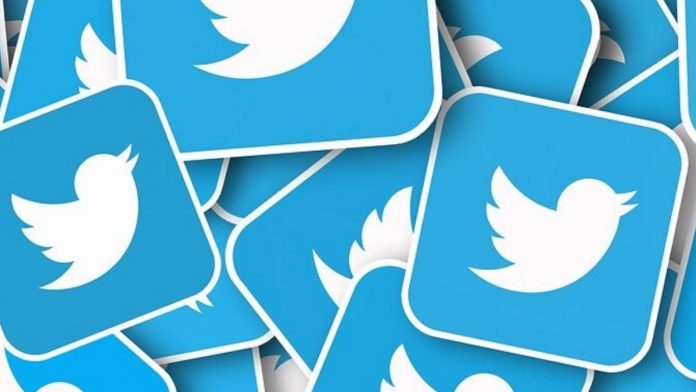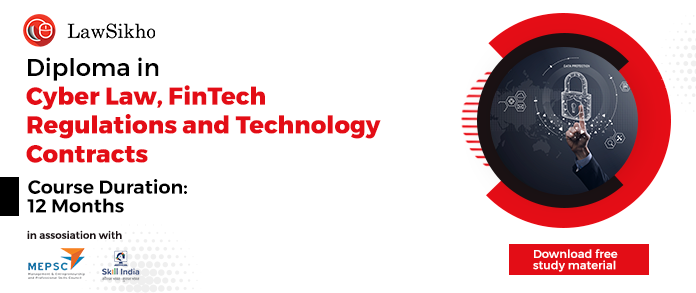This article is written by Rashmi Jha from Amity University, Mumbai. This article gives a brief about the ongoing social media war in India.
Table of Contents
Introduction
A lot of issues are going on between the government and social media. This fight began after the IT Rules came into force on 26 May, 2021. While the new IT Law was amended, the government wants social media companies to follow the new guidelines to function smoothly. Companies are yet to comply with the new rules. Social media platforms like Facebook and Google have agreed to comply with new rules, but Twitter has opposed the new guidelines. This war began in February 2021 during the ongoing farmer protests in Delhi where Greta Thunberg and Rihanna supported and tweeted about them. This led to tensions between the government and Twitter.
The government was unhappy at the laziness of the platform’s execution. For which the Indian government launched new guidelines in Intermediary Guidelines and Digital Media Ethics Code Rules, 2021 and expected social media platforms to follow it. On February 25, 2021, the Ministry of Electronics and Information Technology and the Ministry of Information and Broadcasting (MIB) notified the 2021 Information Technology Regulations (Mediation Guidelines and Digital Media Code of Ethics) (Mediation Regulations 2021) under Article 87 of the Act.
The Information Technology Act, 2000 got replaced by the Information Technology Act (Mediation Guidelines), 2011. The purpose of the 2021 Mediation Act is to create a harmonious and smooth supervision mechanism for social media platforms and digital platforms, multimedia and OTT platforms, etc.
New social media guidelines
The Ministry of Electronics and Information Technology (MeITY) has announced its draft Information Technology (Intermediary Guidelines and Digital Media Ethics Code) Rules, 2021, for social media platforms, OTT players & digital media with significant recommendations including asking social media companies to give out the originator of a message or tweet for example.
- An intermediary is an organization that stores or transmits data on behalf of others. Brokers are Internet or telecommunications service providers, online markets, and social media platforms. The due diligence that intermediaries should follow includes:
1. Informing users of rules and regulations, privacy policies, and terms of using their services.
2. Blocking access to illegal information for 36 hours according to a court or government orders.
3. After logging off or the information collected for user registration will be stored within 180 days after the cancellation of registration. Brokers must report cybersecurity incidents and share relevant information with the Indian Computer Emergency Response Team.
- Social media intermediaries whose registered users in India exceed the threshold (to be notified) are classified as major social media intermediaries. Other due diligence duties that these intermediaries should perform include:
1. Appointment of a chief compliance officer to ensure compliance with IT laws and regulations.
2. Appointment of an Indian complaint expert.
3. Monthly compliance reports.
- Intermediaries that use messaging as their primary service must be able to identify the first sender of information on their platform. If required by judicial or administrative order, the sender must be disclosed. Such orders are approved for specific purposes, including research. Crimes related to national sovereignty and security, public order, or sexual violence; if a less intrusive method of identifying the sender of the information is effective, no order will be issued; the intermediary is not obliged to disclose the content. If the first author is outside India, the author that has the information in India is considered the first author.
- Code of Ethics for Digital Media Publishers: This code specifies the ethical codes that digital media publishers must comply with, including:
1. News and current affairs providers.
2. Selected online content providers (also known as OTT Platform). Wired Network Regulation Act, 1995.
- For news and current affairs, the full codes apply.
- To owe to existing News Behavior Standards established by the Press Council of India.
Programming codes under the Wired Network Regulation Act, 1599. These include:
a. Classify content in appropriate age categories.
b. Implement age verification mechanisms to access adult content and access control, such as parental controls.
c. Provide content to people with disabilities.
- Grievance redressal: The regulation requires distributors and publishers of digital media to provide a complaint mechanism. The mediator should appoint a complaint commissioner to handle complaints that violate the rules. Complaints must be confirmed within 24 hours and resolved within 15 days.
- As far as digital media publishers are concerned, a three-level appeal mechanism has been established to deal with content-related complaints:
1. Publisher self-discipline, supervisory self-discipline.
2. Publishing agencies.
3. Central government control mechanisms.
The publisher appoints a complaint commissioner in India and handles the complaint within 15 days. As part of the monitoring mechanism, the Ministry of Information and Broadcasting (IIB) will set up an inter-agency committee to handle complaints not considered by the self-regulatory agency and will monitor compliance with the ethical code.
- Blocking of content in case of emergency: In an emergency, authorized personnel can view the content of digital media, and the MIB secretary can issue temporary orders to block this content; the final block can only be approved after the committee approves it. If the committee fails, the content must be unlocked.
Indian Government’s war with Twitter
The social media platform was asked to comply with the new guidelines constituted this February. Twitter was among these platforms but it failed to comply with the rules. Twitter described the new social media rules as a threat to freedom of speech. The government strongly condemned Twitter’s response, saying it was baseless and false, and attempted to defame India.
On May 27, 2021, Twitter stated that it would work complying with these new rules but is worried about the recent incidents regarding its employees. Twitter called it “a potential threat to people’s freedom of speech.” It also said, like most civil societies in India and around the world, we are concerned that the police will use intimidation tactics to deal with key elements of our global terms of service and new IT regulations. The social media stage additionally communicated worries over specific parts of the enhanced IT rules, for example, criminal punishment for the central consistency official and proactive observing is disturbing. Twitter has looked for a three-month expansion to follow the upgraded IT rules.
Indian Government responded to Twitter’s owner CEO Jack- Dorsey and asked him to stop beating around the bush. The government condemned the statement pertaining to the infringement of freedom of speech and said that it was defaming India. “Twitter’s assertion is an endeavour to direct its terms to the world’s biggest democracy system. Through its activities and purposeful rebellion, Twitter looks to sabotage India’s overall set of laws. Moreover, Twitter will not conform to those very guidelines in the Intermediary Guidelines based on which it’s anything but protected harbour insurance from any criminal obligation in India,” the assertion, given by the Union Ministry of Electronics and Information Technology (MeitY). The government even said that twitter’s statement is hollow and self-serving. This microblogging site earns significant revenue from India as it contains 1.5 crore users. However, it is most reluctant to appoint a grievance redressal officer and mechanism, Chief Compliance Officer, and officer to whom its users can complain when they are subjected to offensive Tweets.
The question arises here that if Twitter is so committed to its policies then why didn’t it set up its mechanism in India? The commitment and statement sound hollow towards the Indian user base. Further, it was questioned about Twitter’s commitment to India by featuring an ongoing incident where the platform took days to fix the error in the geographical area of a specific region of Ladakh as a component of China when the two nations were occupied in a series of territory issues through bilateral dialogues.
Twitter needs to stop hiding in the bush and comply with the laws, lawmaking, and strategy definitions are the sole right of the sovereign and Twitter is only a web-based media stage and it has no locus standi in directing what should be India’s legitimate system.
The government said that it perceives the right to privacy and is focused on guaranteeing something very similar for its citizens. The rules will be passed uniquely for the reasons of avoidance, examination, discipline. According to the public authority, the guidelines have been outlined after consultation with stakeholders and intermediaries.
Koo, an Indian microblogging website, was developed by Arameya Radhakrishna and Mayank Bidawatka in March 2020. It won the Atma Nirbhar App Innovation Challenge held by the Government of India in August 2020. An Indian adaptation of the microblogging website Twitter is apparently acquiring notoriety among Union priests and the public authority offices, particularly in the scenery of a column with the US-based online media.
Conclusion
The Intermediary Rules 2021 endorse extra prerequisites for the delegates. While the distribution of Compliance Reports is a positive advance that would guarantee straightforwardness and improve the effectiveness of substance control procedures, distributing the reports month to month may make issues for such mediators. Aside from giving the Privacy Policy, User Agreement, and Rules and Regulation for its site/application, the delegate would have to yearly educate the clients that they need to cling to these approaches to keep getting entrance and keep them educated about any progressions in these arrangements. This will make a pointless issue for the middle people as well as for the clients to follow up on at whatever point such data is shipped off them.
Major social media intermediaries should explain to users how to delete content. The rule also requires organizations to allow injured users to dispute actions taken by the mediator, and any decision to do so should be binding. Although this requirement is tedious for social media companies, it is essential. In many cases, social media companies accidentally or otherwise block harmless content. Transparency will ensure that private participants take into account user rights when filtering content.
References
- https://www.indiatoday.in/magazine/up-front/story/20210607-upfront-1807674-2021-05-28
- https://www.financialexpress.com/brandwagon/government-issues-new-guidelines-for-social-media-platforms-digital-news-sites-and-video-streaming-platforms/2201799/
- https://pib.gov.in/PressReleseDetailm.aspx?PRID=1700749
- https://www.mondaq.com/india/social-media/1075196/social-media-rules-2021-transforming-social-media
- https://www.moneycontrol.com/news/technology/it-rules-2021-and-social-media-twitter-centre-tussle-explained-6954301.html
LawSikho has created a telegram group for exchanging legal knowledge, referrals, and various opportunities. You can click on this link and join:
 Serato DJ Crack 2025Serato DJ PRO Crack
Serato DJ Crack 2025Serato DJ PRO Crack











 Allow notifications
Allow notifications


